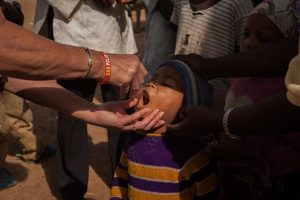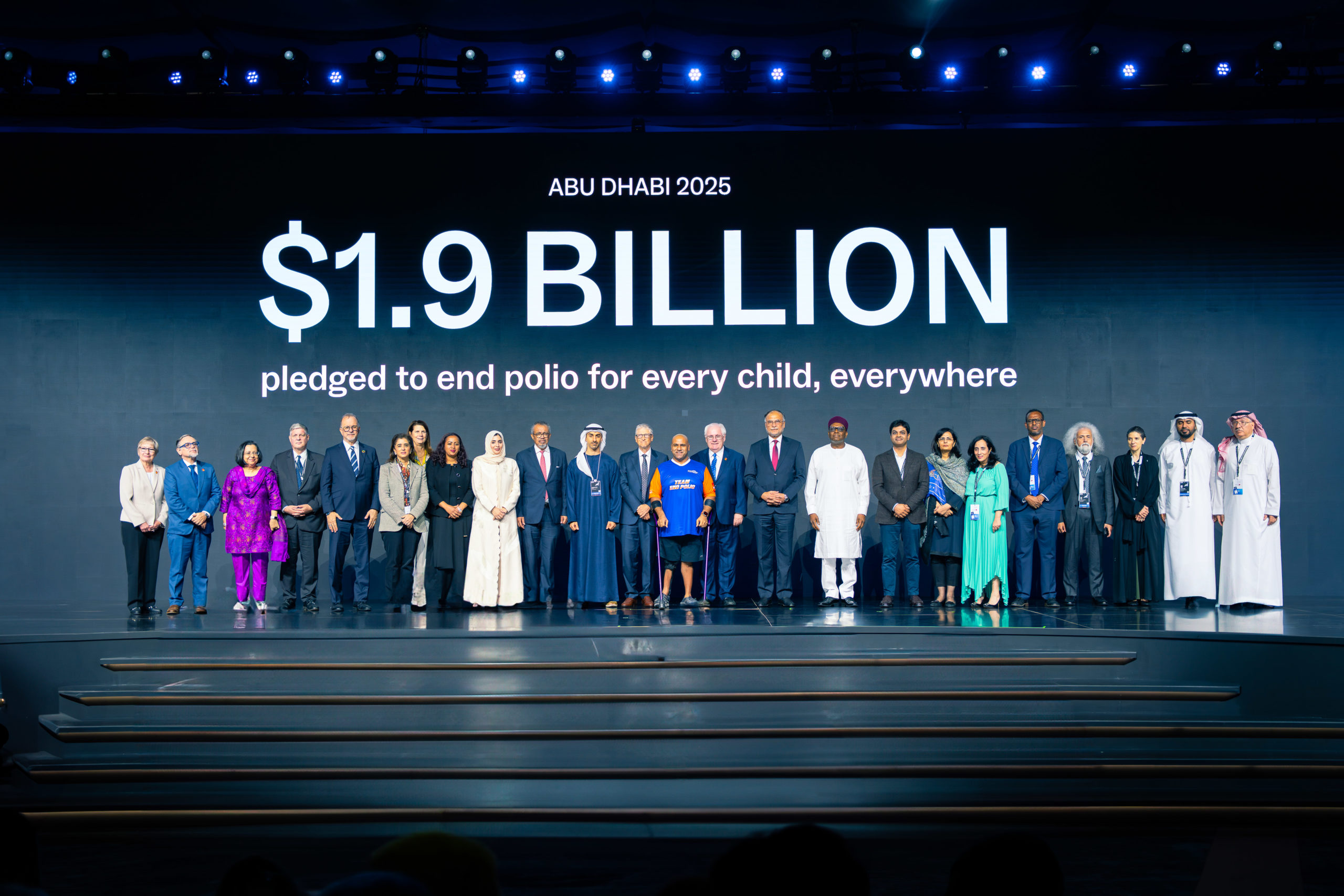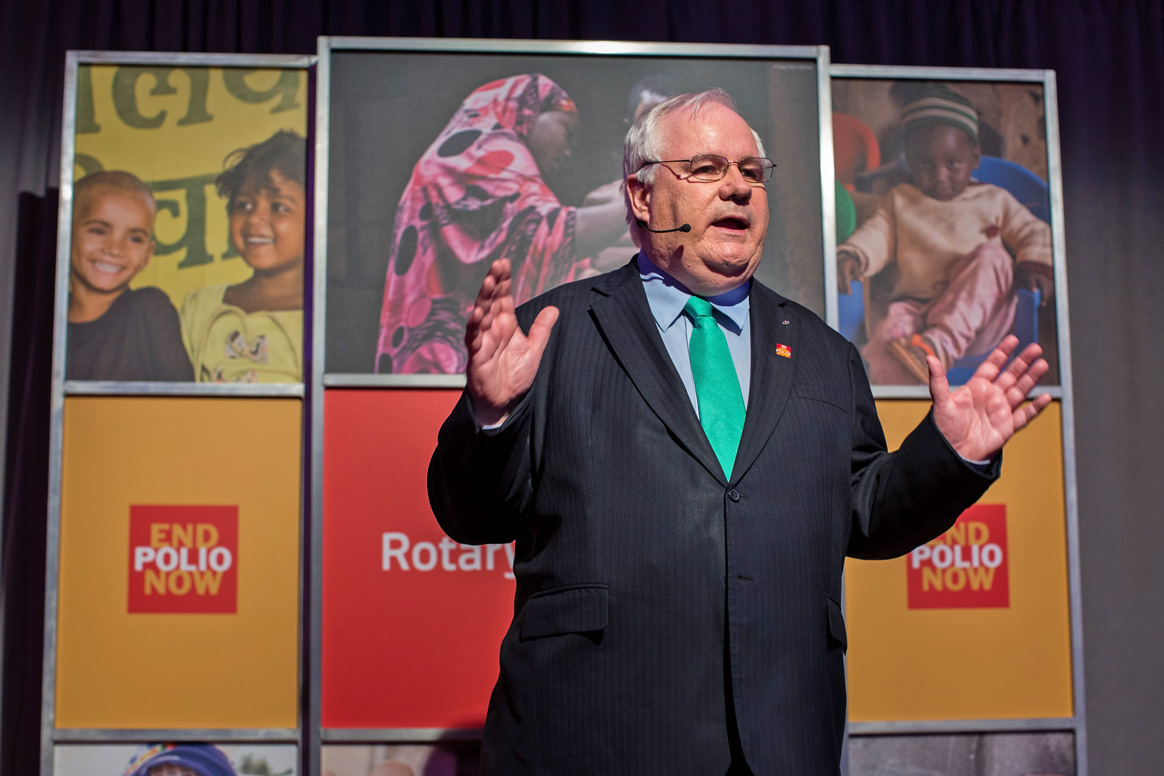
The continued fight to eradicate polio gets an additional US$ 34.8 million boost from Rotary in support of immunization activities and research to be carried out by the Global Polio Eradication Initiative. The funds will be used by the World Health Organization (WHO) and UNICEF for polio immunization, surveillance and research activities in ten countries, as well as to provide technical assistance to additional countries in Africa.
In 2014, the world saw significant progress against polio in most places. Nigeria – the last polio-endemic country in Africa – saw a nearly 90% reduction in cases in 2014 over 2013, with the last case recorded six months ago. In addition, more than half of the world’s polio cases in 2013 were the result of outbreaks in previously polio-free countries, largely caused by instability and conflict in countries such as Syria, Iraq and Somalia. These outbreaks appear to have been stopped in 2014 following special vaccination efforts in 11 countries, reaching more than 56 million children.
The exception to this progress was Pakistan, which saw an explosive outbreak which resulted in more than 300 cases in 2014, the highest number in the country in more than a decade. As a result, Pakistan accounted for over 80% of the world’s cases in 2014. In 2015, Pakistan has the opportunity to reverse that trend and in doing so, help the world end polio forever.
The progress made against the disease in 2014, while significant, is fragile. Rotary’s funds will support efforts to end polio in the three countries where the disease has never been stopped: US$ 8.1 million in Nigeria; US$ 1.1 million in Pakistan and US$ 6.7 million in Afghanistan.
Additional funds will support efforts to keep other at-risk countries polio-free. The grants include US$ 1.6 million, Cameroon: US$ 2.5 million, Chad; US$ 3.3 million, Democratic Republic of the Congo; US$ 1.1 million, Ethiopia; US$ 250 000, Kenya; US$ 2.8 million, Niger; and US$ 7 million, Somalia. In addition, grants totalling US$ 321 000 will provide technical assistance in Africa.
“We are encouraged to see the tangible progress made against this disease in 2014,” said Mike McGovern, chair of Rotary’s International PolioPlus Committee. “However, until we eliminate polio from its final reservoirs, children everywhere are at risk from this disease. Rotary – along with our partners – will work hard to ensure the world’s most vulnerable children are kept safe from polio.”
Rotary launched its polio immunization program PolioPlus in 1985 and in 1988 became a spearheading partner in the Global Polio Eradication Initiative with the WHO, UNICEF, and the U.S. Centers for Disease Control and Prevention. Since the initiative launched in 1988, the incidence of polio has plummeted by more than 99 percent, from about 350 000 cases a year to 350 confirmed to date in 2014.
Rotary’s roles within the initiative are fundraising, advocacy, and social mobilization. To date, Rotary has contributed more than US$ 1.3 billion and countless volunteer hours to fight polio. Through 2018, every new dollar Rotary commits to polio eradication will be matched two-to-one by the Bill & Melinda Gates Foundation up to US$ 35 million a year.



